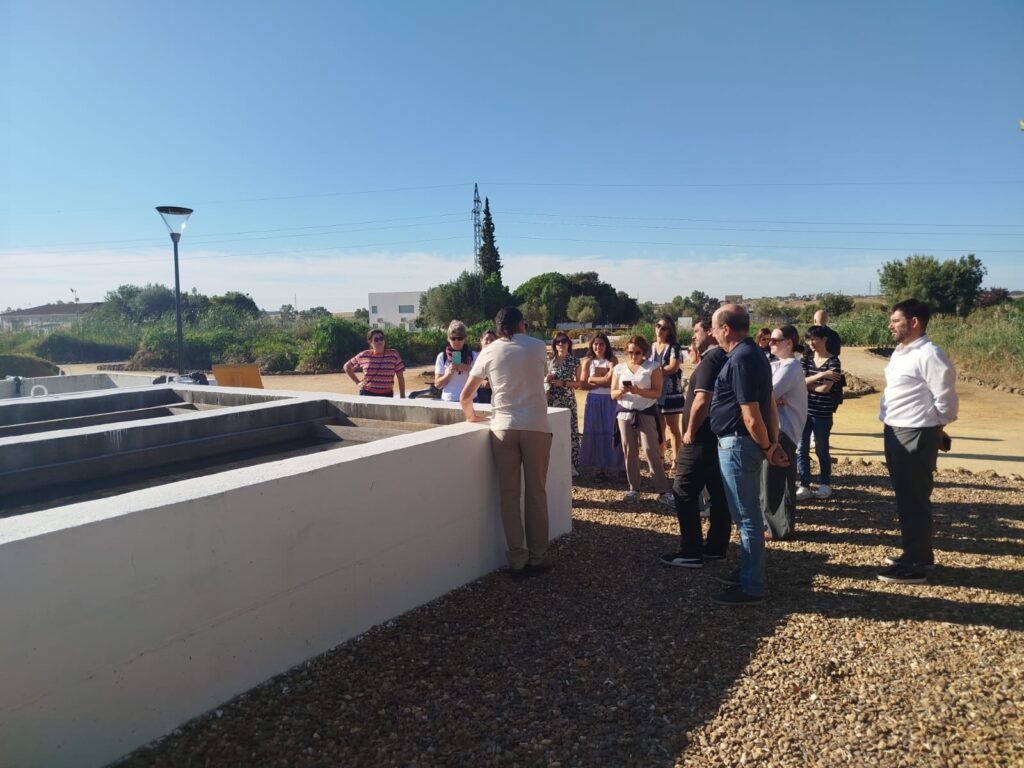Representatives of the ten entities that make up the consortium of the European project SOLLAGUA, focused on developing nature-based solutions (NBS) for water reuse in rural areas, held their fourth face-to-face meeting on 23 and 24 September at the headquarters of the Experimental Centre for New Water Technologies (CENTA), an institution under the Regional Government of Andalusia. The aim was to take stock of the work carried out and to review the planning for 2026, the year in which the research initiative will conclude. The meeting agenda was divided into two sections.
Day one: technical visit and progress of the pilots

After the institutional welcome, the partners were given a detailed tour of CENTA’s facilities, which since 1990 has been an international reference centre in applied research, training and dissemination on wastewater treatment and water recovery.
The day continued with the sessions of Working Groups 1 and 2, focused on generating knowledge and tools for NBS and on developing the NB-WoLL strategy, whose main mission is to engage and promote exchanges among all water management stakeholders. In this context, progress was reviewed on the demonstrators to be launched in Cheles (Extremadura, Spain), Zambujeira (Beja, Portugal) and Caumont (Occitanie, France) in the coming months.
The results of technical deliverables 1.1.1 and 2.1.1 were also presented, followed by a discussion on how to involve agricultural cooperatives and local producers more effectively, as they are key actors in transferring these technologies.
Day two: communication and future outlook
The second day was dedicated to reviewing the Communication Plan, resolving administrative matters and preparing the work of Working Group 3. Coordinated by CTA, this group will focus on identifying barriers to adoption and promoting the replication of nature-based technologies. This line of action will start as soon as the demonstrators are up and running.

